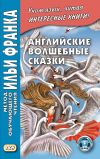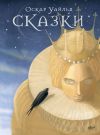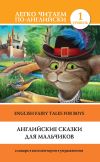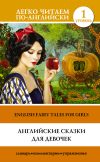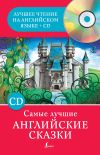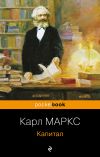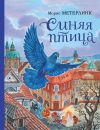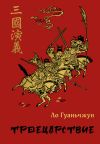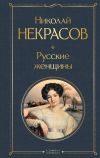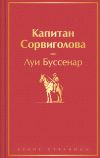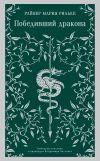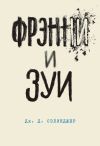Текст книги "Сказки / Fairy Tales"
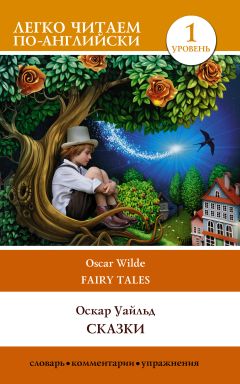
Автор книги: Оскар Уайльд
Жанр: Иностранные языки, Наука и Образование
Возрастные ограничения: +12
сообщить о неприемлемом содержимом
Текущая страница: 3 (всего у книги 8 страниц)
‘Oh! Never!’ cried little Hans and he jumped out of bed, and dressed himself, and went up to the barn.
He worked there all day long, till sunset. At sunset the Miller came to him.
‘What about the hole in the roof, little Hans?’ cried the Miller in a cheery voice.
‘It is quite mended,’ answered little Hans, and came down the ladder.
‘Ah!’ said the Miller, ‘there is no work so delightful as the work one does for others.’
‘It is certainly a great privilege to hear you,’ answered little Hans. He sat down and wiped his forehead, ‘a very great privilege. I am afraid I shall never have such beautiful ideas as you have.’
‘Oh! they will come to you,’ said the Miller, ‘but you must work more. At present you have only the practice of friendship; some day you will have the theory also.’
‘Do you really think I shall?’ asked little Hans.
‘I have no doubt of it,’ answered the Miller, ‘now the roof is mended, and you may go home and rest. I want you to drive my sheep to the mountain tomorrow.’
Poor little Hans was afraid to say anything to this. Early the next morning the Miller brought his sheep round to the cottage, and Hans went with them to the mountain. It took him the whole day to get there and back. When he returned he was so tired that he went off to sleep in his chair, and did not wake up till it was daylight.
‘What a delightful time I shall have in my garden,’ he said, and he went to work at once.
But somehow he was never able to work in his garden, because his friend the Miller always came round and asked to help him. Little Hans was very much distressed, but he consoled himself by the reflection that the Miller was his best friend.
‘Besides,’ he said, ‘he will give me his wheelbarrow, and that is an act of pure generosity.’
So little Hans worked for the Miller, and the Miller said beautiful things about friendship, which Hans took down in a note-book, and used to read over at night, for he was a very good scholar.
One evening little Hans sat by his fireside. A loud rap came at the door. At first he thought it was merely the storm. But a second rap came, and then a third, louder than any of the others.
‘It is some poor traveller,’ said little Hans to himself, and he ran to the door.
There stood the Miller with a lantern in one hand and a big stick in the other.
‘Dear little Hans,’ cried the Miller, ‘I am in great trouble. My little boy fell off a ladder and hurt himself, and we need a Doctor. But he lives so far away, and it is such a bad night… It will be much better if you go instead of me. You know I will give you my wheelbarrow, and you must do something for me in return.’
‘Certainly,’ cried little Hans, ‘I will go at once. But you must lend me your lantern, because the night is very dark.’
‘I am very sorry,’ answered the Miller, ‘but it is my new lantern. It will be a great loss to me if anything happens to it.’
‘Well, never mind, I will do without it,’ cried little Hans. He put his great fur coat and his warm scarlet cap on, and tied a muffler round his throat.
What a dreadful storm it was! The night was so black that little Hans did not see anything. The wind was so strong that he scarcely stood. However, he was very courageous, and in three hours he arrived at the Doctor’s house, and knocked at the door.
‘Who is there?’ cried the Doctor. He put his head out of his bedroom window.
‘Little Hans, Doctor.’
‘What do you want, little Hans?’
‘The Miller’s son fell from a ladder, and hurt himself. The Miller wants you to come at once.’
‘All right!’ said the Doctor; and he ordered his horse, and his big boots, and his lantern, and came downstairs, and rode off in the direction of the Miller’s house. Little Hans trudged behind him.
But the storm grew worse and worse, and the rain fell in torrents. Little Hans did not see the road. At last he lost his way, and wandered off on the moor. It was a very dangerous place, it was full of deep holes. There poor little Hans was drowned. The next day some goatherds found his body. They brought it back to the cottage.
Everybody went to little Hans’ funeral, because he was very popular. The Miller was the chief mourner.
‘As I was his best friend,’ said the Miller, ‘I must have the best place’; so he walked at the head of the procession in a long black cloak. He wiped his eyes with a big handkerchief.
‘Little Hans is certainly a great loss to everyone,’ said the Blacksmith, when the funeral was over, and they were all seated comfortably in the inn. They drank spiced wine and ate sweet cakes.
‘A great loss to me,’ answered the Miller; ‘I wanted to give him my wheelbarrow, and now I really don’t know what to do with it. It is very big, and it is so bad that I can’t sell it. I will never give such expensive presents to anyone. One always suffers for his generosity.’”
“Well?” said the Water-rat, after a long pause.
“Well, that is the end,” said the Linnet.
“But what became of the Miller?” asked the Water-rat.
“Oh! I really don’t know,” replied the Linnet; “and I am sure that I don’t care.”
“It is quite evident then that you have no sympathy in your nature,” said the Water-rat.
“I am afraid you don’t quite see the moral of the story,” remarked the Linnet.
“The what?” screamed the Water-rat.
“The moral.”
“Do you mean to say that the story has a moral?”
“Certainly,” said the Linnet.
“Well, really,” said the Water-rat, in a very angry manner, “why didn’t you tell me that earlier? It was reasonable to say ‘Pooh,’ like the critic. However, I can say it now”; so he shouted out
“Pooh” at the top of his voice, and went back into his hole.
“And how do you like the Water-rat?” asked the Duck, some minutes afterwards. “He has many good points, but I have mother’s feelings. I can never look at a bachelor without tears.”
“I am afraid that I annoyed him,” answered the Linnet. “The fact is, that I told him a story with a moral.”
“Ah! that is always a very dangerous thing to do,” said the Duck.
And I quite agree with her.
The Selfish Giant
Every afternoon, after school, the children liked to play in the Giant’s garden. It was a large lovely garden, with soft green grass. Here and there over the grass stood beautiful flowers like stars, and there were twelve peach-trees bore rich fruit in the autumn. The birds sat on the trees and sang so sweetly that the children often stopped their games in order to listen to them.
“How happy we are here!” they cried to each other.
One day the Giant came back. He visited his friend the Cornish ogre[40]40
Cornish ogre – корнуольский людоед
[Закрыть], and stayed with him for seven years. After that he decided to return to his own castle. When he arrived he saw the children in the garden.
“What do you do here?” he cried in a very gruff voice, and the children ran away.
“My own garden is my own garden,” said the Giant; “anyone can understand that. I will allow nobody to play in it but myself.”
So he built a high wall all round it, and put up a notice-board:
TRESPASSERS WILL BE PROSECUTED
He was a very selfish Giant.
The poor children had now nowhere to play. They tried to play on the road, but the road was very dusty and full of hard stones, and they did not like it. They wandered round the high wall when their lessons were over, and talked about the beautiful garden inside.
“How happy we were there,” they said to each other.
Then the Spring came. All over the country there were little blossoms and little birds. Only in the garden of the Selfish Giant it was still winter. The birds did not sing in it. There were no children in the garden anymore, and the trees forgot to blossom. Once a beautiful flower put its head out from the grass, but when it saw the notice-board it was so sorry for the children that it slipped back into the ground again, and went off to sleep. The only people who were pleased were the Snow and the Frost.
“Spring forgot this garden,” they cried, “we will live here all the year round!”
The Snow covered up the grass with its great white cloak, and the Frost painted all the trees silver. Then they invited the North Wind to stay with them. The North Wind was wrapped in furs. It roared all day about the garden, and blew the chimney-pots down.
“This is a delightful spot,” the North Wind said, “we must invite the Hail.”
So the Hail came. Every day for three hours the Hail rattled on the roof of the castle till it broke most of the slates, Then it ran round and round the garden very fast. The Hail was dressed in grey, and its breath was like ice.
“I cannot understand why the Spring is so late,” said the Selfish Giant, as he sat at the window and looked out at his cold white garden; “I hope there will be a change in the weather.”
But the Spring did not come, nor the Summer. The Autumn gave golden fruit to every garden, but to the Giant’s garden it gave none.
“He is too selfish,” the Autumn said.
So it was always Winter there, and the North Wind, and the Hail, and the Frost, and the Snow danced about through the trees.
One morning the Giant was still in bed when he heard some lovely music. It sounded very sweet to his ears. What was it? The King’s musicians? No. It was really only a little linnet which sang outside his window. The linnet’s song was the most beautiful music in the world to the Giant. Then the Hail ceased to dance, and the North Wind ceased to roar. A delicious perfume came to the Giant through the open casement.
“I think this is the Spring, at last,” said the Giant; and he jumped out of bed and looked out.
What did he see?
He saw a most wonderful sight. Through a little hole in the wall the children crept in. They sat in the branches of the trees. In every tree there was a little child. And the trees were so glad to have the children back again that they covered themselves with blossoms. The trees waved their arms gently above the children’s heads. The birds flew about and twittered with delight. The flowers looked up through the green grass and laughed. It was a lovely scene, only in one corner it was still winter.
It was the farthest corner of the garden. A little boy stood there. He was so small that he could not reach up to the branches of the tree. So he wandered all round it and cried bitterly. The poor tree was still quite covered with frost and snow, and the North Wind blew and roared above it.
“Climb up! little boy,” said the Tree, and it bent its branches down; but the boy was too tiny.
The Giant’s heart melted as he looked out.
“How selfish I am!” he said; “now I know why the Spring does not come here. I will put that poor little boy on the top of the tree. Then I will knock down the wall, and my garden will be the children’s playground for ever.”
He was really very sorry.
So he crept downstairs and opened the front door quite softly, and went out into the garden. But when the children saw him they were so frightened that they all ran away. The garden became winter again.
Only the little boy did not run. His eyes were so full of tears that he did not see the Giant. And the Giant stood behind him and took him gently in his hand, and put him up into the tree. The tree broke at once into blossom, and the birds came and sang on it. The little boy stretched out his two arms and flung them round the Giant’s neck, and kissed him. And the other children, when they saw that the Giant was not wicked any longer, came back, and with them came the Spring.
“It is your garden now, little children,” said the Giant, and he took a great axe and knocked down the wall.
When the people went to market at twelve o’clock they found the Giant with the children in the beautiful garden. All day long they played, and in the evening they came to the Giant to bid him good-bye[41]41
to bid him good-bye – чтобы с ним попрощаться
[Закрыть].
“But where is your little companion?” he said: “the boy I put into the tree.”
The Giant loved him much.
“We don’t know,” answered the children; “he is away.”
“You must tell him to come here tomorrow,” said the Giant.
But the children said that they did not know where he lived. The Giant was very sad.
Every afternoon, when school was over, the children came and played with the Giant. But that little boy did not appear.
The Giant was very kind to all the children, yet he wanted to see his first little friend, and often spoke of him.
“How to see him?” he asked.
Years went over, and the Giant grew very old and feeble. He did not play anymore, he sat in a huge armchair, and watched the children at their games, and admired his garden.
“I have many beautiful flowers,” he said; “but the children are the most beautiful flowers of all.”
One winter morning he looked out of his window. He did not hate the Winter now, for he knew that it was merely the Spring asleep.
Suddenly he rubbed his eyes in wonder, and looked and looked. It certainly was a marvellous sight. In the farthest corner of the garden was a tree quite covered with lovely white blossoms. Its branches were all golden, and silver fruit hung down from them. Underneath it stood the little boy.
The Giant ran downstairs in great joy. He hastened across the grass, and came near to the child. And when he came quite close his face grew red with anger, and he said,
“Who dared to wound you?”
On the palms of the child’s hands were the prints of two nails, and the prints of two nails were on the little feet.
“Who dared to wound you?” cried the Giant; “tell me! I will take my big sword and slay him.”
“No!” answered the child; “these are the wounds of Love.”
“Who are you?” said the Giant.
A strange awe fell on him, and he knelt before the little child.
The child smiled on the Giant, and said to him,
“You let me play once in your garden, today you will come with me to my garden, which is Paradise.”
And when the children ran in that afternoon, they found the dead Giant under the tree. He was all covered with white blossoms.
The Remarkable Rocket
The King’s son was going to be married[42]42
was going to be married – собирался жениться
[Закрыть], so there were general rejoicings. He waited a whole year for his bride, and at last she arrived. She was a Russian Princess, and drove all the way from Finland in a sledge. Six reindeer drew that sledge. The sledge was like a great golden swan, and between the swan’s wings lay the little Princess herself. Her long ermine-cloak[43]43
ermine-cloak – горностаевая мантия
[Закрыть] reached right down to her feet, and on her head was a tiny silver cap. She was as pale as the Snow Palace in which she always lived. She was so pale that all the people wondered.
“She is like a white rose!” they cried, and they threw down flowers on her from the balconies.
The Prince waited to receive her at the gate of the Castle. He had dreamy violet eyes, and his hair was like fine gold. When he saw her he sank upon one knee, and kissed her hand.
“Your picture was beautiful,” he murmured, “but you are more beautiful than your picture”.
The little Princess blushed.
“She was like a white rose before,” said a young Page to his neighbour, “but she is like a red rose now”.
The whole Court was delighted.
For the next three days everybody said, “White rose, Red rose, Red rose, White rose”. The King gave orders to double the Page’s salary. He received no salary at all, so this was not useful to him, but it was a great honour, of course. The news was published in the Court Gazette.
When the three days were over the marriage was celebrated. It was a magnificent ceremony. The bride and bridegroom walked hand in hand under a canopy of purple velvet with little pearls. Then there was a State Banquet, which lasted for five hours. The Prince and Princess sat at the top of the Great Hall and drank out of a cup of clear crystal. Only true lovers can drink out of this cup: if false lips touch it, it will grow grey and dull and cloudy.
“It’s quite clear that they love each other,” said the little Page, “as clear as crystal!”
The King doubled his salary a second time.
“What an honour!” cried all the courtiers.
After the banquet there was a Ball. The bride and bridegroom danced together, and the King played the flute. He played very badly, but no one dared to tell him so, because he was the King. Indeed, he knew only two melodies, and was never quite certain which one to play. But who cared? Whatever he did, everybody cried out, “Charming! charming!”
The last item on the programme was a grand display of fireworks, exactly at midnight. The little Princess wanted to see a real firework, so the King gave orders to the Royal Pyrotechnist to do everything for that on the day of her marriage.
“What are fireworks like?” she asked the Prince, one morning.
“They are like the Aurora Borealis,” said the King, who always answered questions that were addressed to other people, “only much more natural. I prefer them to stars myself. You always know when they appear, and they are as delightful as my flute music. You must certainly see them.”
At the end of the King’s garden there was a great stand. When the Royal Pyrotechnist put everything in its proper place, the fireworks began to talk to each other.
“The world is certainly very beautiful,” cried a little Squib. “Just look at those yellow tulips. I am very glad I travelled. Travel improves the mind wonderfully, and dispels all prejudices.”
“The King’s garden is not the world, you foolish squib,” said a big Roman Candle; “the world is an enormous place. It will take you three days to see it thoroughly.”
“Any place you love is the world to you,” exclaimed a pensive Catherine Wheel[44]44
Catherine Wheel – огненное колесо
[Закрыть], who was once attached to an old box, and prided herself on her broken heart; “but love is not fashionable anymore. The poets killed it. They wrote so much about it that nobody believed them. I am not surprised. True love suffers, and is silent. I remember myself once – But it is no matter now. Romance is a thing of the past.”
“Nonsense!” said the Roman Candle, “Romance never dies. It is like the moon, and lives for ever. The bride and bridegroom, for instance, love each other very dearly. I heard all about them this morning from a brown-paper cartridge[45]45
brown-paper cartridge – коричневый картонный патрон
[Закрыть], who stayed in the same drawer as myself, and knew the latest Court news.”
But the Catherine Wheel shook her head.
“Romance is dead, Romance is dead, Romance is dead,” she murmured.
She was one of those people who think that, if you say the same thing over and over a great many times, it becomes true in the end.
Suddenly, they heard a sharp, dry cough. All looked round.
It came from a tall, supercilious-looking[46]46
supercilious-looking – надменного вида
[Закрыть] Rocket, who was tied to the end of a long stick. He always coughed before he made any observation. He wanted to attract attention.
“Ahem! ahem!” he said, and everybody listened except the poor Catherine Wheel, who still murmured, “Romance is dead.”
“Order! order!” cried out a Cracker.
He was a politician, and always took a prominent part in the local elections. So he knew the proper Parliamentary expressions.
“Quite dead,” whispered the Catherine Wheel, and she went off to sleep.
As soon as there was perfect silence, the Rocket coughed a third time and began. He spoke with a very slow, distinct voice.
“How fortunate it is for the King’s son,” he remarked, “that he will be married on the very day on which I will fly away. Princes are always lucky.”
“Oh God!” said the little Squib, “I think it is quite the other way[47]47
it is quite the other way – как раз наоборот
[Закрыть]. We will fly away in the Prince’s honour.”
“It may be so with you,” the Rocket answered; “indeed, I have no doubt that it is. But with me it is different. I am a very remarkable Rocket. I have remarkable parents. My mother was the most celebrated Catherine Wheel of her day, and was an excellent dancer. She spun round nineteen times before she died, and each time that she did so she threw into the air seven pink stars. She was three feet and a half in diameter. She was made of the best gunpowder. My father was a Rocket like myself, he was French. He flew so high that the people were afraid. But he came down again, because he was kind. And he made a shower of golden rain. The newspapers wrote about his performance. Indeed, the Court Gazette called him a triumph of Pylotechnic art.”
“Pyrotechnic, Pyrotechnic, you mean,” said a Bengal Light; “I know it is Pyrotechnic, for I saw this word on my own canister.”
“Well, I said Pylotechnic,” answered the Rocket, in a severe tone of voice.
The Bengal Light felt so crushed that he began at once to bully the little squibs, in order to show that he was still an important person.
“I said,” continued the Rocket, “I said – What did I say?”
“You talked about yourself,” replied the Roman Candle.
“Of course; I knew I discussed some interesting subject. I hate rudeness and bad manners, I am extremely sensitive. No one in the whole world is so sensitive as I am, I am quite sure of that.”
“What is a sensitive person?” said the Cracker to the Roman Candle.
“A person who, because he has corns himself, always treads on other people’s toes,” answered the Roman Candle in a low whisper.
The Cracker laughed.
“What do you laugh at?” inquired the Rocket; “I do not laugh at all.”
“I laugh because I am happy,” replied the Cracker.
“That is a very selfish reason,” said the Rocket angrily. “What right have you to be happy? You must think about others. In fact, you must think about me. I always think about myself, and I expect everybody else to do the same. That is what is called sympathy. It is a beautiful virtue. I possess it, of course. Suppose, for instance, anything happens to me tonight. What a misfortune for everyone! The Prince and Princess will never be happy again. Their whole married life will be spoiled. As for the King, I know he will just die. Really, when I begin to reflect on the importance of my position, I weep.”
“If you want to give pleasure to others,” cried the Roman Candle, “keep yourself dry.”
“Certainly,” exclaimed the Bengal Light; “that is only common sense.”
“Common sense, indeed!” said the Rocket indignantly; “you forget that I am very uncommon, and very remarkable. Well, anybody can have common sense if they have no imagination. But I have imagination. I never think of things as they really are. I always think of them differently. You recommend me to be dry. There is evidently no one here who can appreciate an emotional nature[48]48
emotional nature – впечатлительная натура
[Закрыть]. Fortunately for myself, I don’t care. The only thing that sustains one through life is the consciousness of the immense inferiority of everybody else. This is my feeling. But none of you have any hearts. Here you laugh and make merry. You forget that the Prince and Princess are already married.”
“Well, really,” exclaimed a small Fire-balloon, “why not? It is a very joyful occasion. When I soar up into the air I intend to tell the stars all about it. They will twinkle when I talk to them about the pretty bride.”
“Ah! what a trivial view of life!” said the Rocket; “but it is only what I expected. There is nothing in you. You are hollow and empty. Perhaps the Prince and Princess may go to live in a country where there is a deep river. Perhaps they may have one only son, a little fair-haired boy with violet eyes like the Prince himself. Perhaps some day he may go out to walk with his nurse. Perhaps the nurse may go to sleep under a great elder-tree. Perhaps the little boy may fall into the deep river and be drowned. What a terrible misfortune! Poor people, to lose their only son! It is really dreadful!”
“But they did not lose their only son,” said the Roman Candle; “no misfortune happened to them at all.”
“I do not say that they did,” replied the Rocket; “I say that they may. I hate people who cry over spilt milk. But when I think that they may lose their only son, I certainly am very much affected.”
“You certainly are!” cried the Bengal Light. “In fact, you are the most affected person in the world.”
“You are the rudest person in the world,” said the Rocket, “and you cannot understand my friendship for the Prince.”
“But you don’t even know him,” growled the Roman Candle.
“I do not say I know him,” answered the Rocket. “I dare say that if I know him I won’t be his friend at all. It is a very dangerous thing to know one’s friends.”
“It’s really better to keep yourself dry,” said the Fire-balloon. “That is the important thing.”
“Very important for you, I have no doubt,” answered the Rocket, “but I shall weep if I choose”.
And he actually burst into real tears. The tears flowed down his stick like rain-drops, and nearly drowned two little beetles.
“He must have a truly romantic nature,” said the Catherine Wheel, “for he weeps when there is nothing at all to weep about”.
And she heaved a deep sigh, and thought about the deal box.
But the Roman Candle and the Bengal Light were quite indignant, and said, “Humbug! humbug!”. They were extremely practical, and whenever they objected to anything they called it humbug.
Then the moon rose like a wonderful silver shield. The stars began to shine. A sound of music came from the palace.
The Prince and Princess danced so beautifully that the tall white lilies peeped in at the window and watched them, and the great red poppies nodded their heads.
Then ten o’clock struck, and then eleven, and then twelve. At the last stroke of midnight everyone came out on the terrace. The King sent for the Royal Pyrotechnist.
“Let the fireworks begin[49]49
Let the fireworks begin. – Пора начинать фейерверк.
[Закрыть],” said the King.
The Royal Pyrotechnist made a low bow, and marched down to the end of the garden. He had six attendants with him, each of whom carried a lighted torch at the end of a long pole.
It was certainly a magnificent display.
Whizz! Whizz! went the Catherine Wheel, as she spun round and round. Boom! Boom! went the Roman Candle. Then the Squibs danced all over the place. The Bengal Lights made everything look scarlet. “Good-bye,” cried the Fire-balloon, as he soared away. He dropped tiny blue sparks.
Bang! Bang! answered the Crackers.
Everyone was a great success except the Remarkable Rocket. He was so damp that he could not go off at all. The best thing in him was the gunpowder, and that was so wet with tears that it was of no use. All his poor relations flew up into the sky like wonderful golden flowers with blossoms of fire. Huzza! Huzza! cried the Court; and the little Princess laughed with pleasure.
“I suppose they reserve me for some grand occasion,” said the Rocket; “no doubt. I’m sure.”
And he looked more supercilious than ever.
The next day the workmen came.
“This is evidently a deputation,” said the Rocket; “I will receive them with dignity.”
He put his nose in the air, and began to frown severely. But the workmen took no notice of him. Suddenly one of them saw him.
“Hallo!” he cried, “what a bad rocket!” and he threw him over the wall into the ditch.
“BAD Rocket? BAD Rocket?” he said, as he whirled through the air; “impossible! GRAND Rocket, that is what the man said. BAD and GRAND sound very much the same. Indeed they often are the same”; and he fell into the mud.
“It is not comfortable here,” he remarked, “but no doubt it is some fashionable watering-place[50]50
watering-place – курорт
[Закрыть]. They sent me away to recruit my health. My nerves are certainly very much shattered. I require rest.”
Then a little Frog, with bright jeweled eyes, and a green mottled coat, swam up to him.
“A new arrival, I see!” said the Frog. “Well, after all there is nothing like mud. Give me rainy weather and a ditch, and I am quite happy. Do you think it will be a wet afternoon? I am sure I hope so, but the sky is quite blue and cloudless. What a pity!”
“Ahem! ahem!” said the Rocket, and he began to cough.
“What a delightful voice you have!” cried the Frog. “Really it is quite like a croak. Croaking is the most musical sound in the world. You will hear our glee-club[51]51
glee-club – хоровая группа
[Закрыть] this evening. We sit in the old duck pond close by the farmer’s house. When the moon rises we begin. It is so entrancing that everybody listens to us. In fact, the farmer’s wife says to her mother that she cannot sleep at night because of us. We are very popular.”
“Ahem! ahem!” said the Rocket angrily.
He was very much annoyed that he did not say a word.
“A delightful voice, certainly,” continued the Frog; “I hope you will come over to the duck-pond. I will look for my daughters. I have six beautiful daughters. I am so afraid the Pike may meet them. He is a perfect monster. He may eat them. Well, good-bye. I enjoyed our conversation very much, I assure you.”
“Conversation, indeed!” said the Rocket. “You talk the whole time yourself. That is not conversation.”
“Somebody must listen,” answered the Frog, “and I like to talk. It saves time, and prevents arguments.”
“But I like arguments,” said the Rocket.
“I hope not,” said the Frog complacently. “Arguments are extremely vulgar. Everybody in good society holds exactly the same opinions. Good-bye a second time. I see my daughters already.”
And the little Frog swam away.
“You are a very irritating person,” said the Rocket, “and very ill-bred. I hate people who talk about themselves, as you do, when one wants to talk about oneself, as I do. It is what I call selfishness. Selfishness is a very detestable thing, especially to anyone of my temperament. I am famous for my sympathetic nature. In fact, you must follow my example. You can’t have a better model. Now I will go back to Court almost immediately. I am a great favourite at Court. In fact, the Prince and Princess were married yesterday in my honour. Of course you know nothing of this, because you are a provincial.”
“There is no need to talk to him,” said a Dragon-fly on the top of a large brown bulrush; “no need to talk at all. He is away.”
“Well, that is his loss, not mine,” answered the Rocket. “I will talk to him even if he pays no attention. I like to hear myself. It is one of my greatest pleasures. I often have long conversations all by myself. I am so clever that sometimes I don’t understand a single word of what I say.”
“Then you must lecture on Philosophy,” said the Dragon-fly.
And he spread a pair of lovely gauze wings and soared away into the sky.
“How very silly of him not to stay here!” said the Rocket. “I am sure that he has not often got such a chance to improve his mind. However, I don’t care. Some day they will appreciate my genius.”
And he sank down a little deeper into the mud.
After some time a large White Duck swam up to him. She had yellow legs, and webbed feet. She was very beautiful because of her waddle.
Правообладателям!
Это произведение, предположительно, находится в статусе 'public domain'. Если это не так и размещение материала нарушает чьи-либо права, то сообщите нам об этом.

